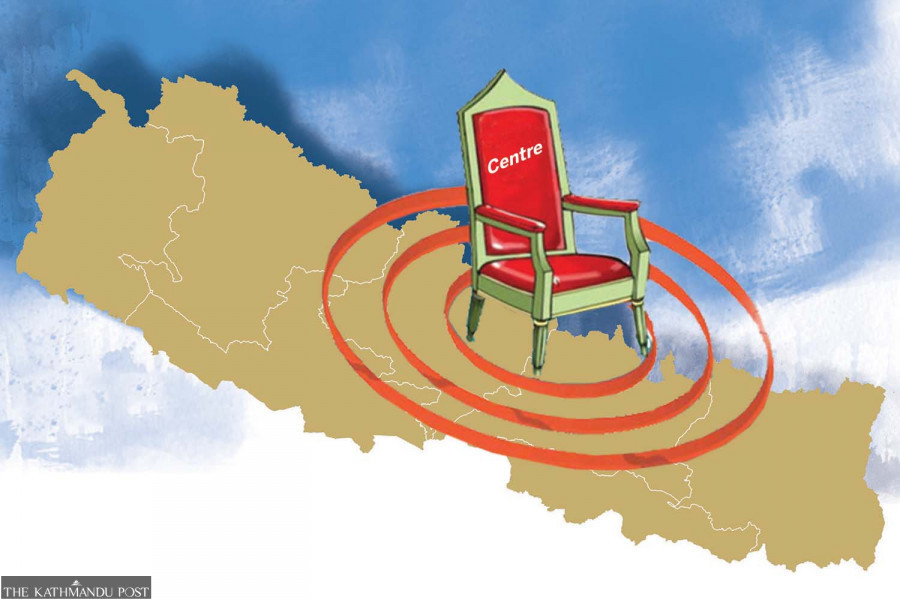Editorial
Provinces against centre
Kathmandu should refrain from encroaching on the jurisdiction of subnational governments.
This story has been told many times over the past few years—yet it is worth repeating. For it goes to the heart of Nepal’s democratic process. It has been eight years since Nepal adopted federalism, but certain state apparatuses at the federal level still fail to acknowledge it. The reluctance on the part of the authorities to honour the spirit of federalism has hindered the devolution of power to the provinces as required by the 2015 Constitution of Nepal. A case in point is the frustration expressed by the Madhesh Province government, which has been asking the federal government to expedite adjusting the police force. Without a force of its own, the provincial government cannot maintain law and order in its jurisdiction, a serious security concern that the federal government fails to acknowledge. The provincial government has now given the federal government a 30-day ultimatum to adjust the police force as mandated by the constitution.
The hesitation to let go of the unitary police force is not the only anti-federal federal government act. The provincial governments have also failed to set up civil services. Again, the constitution requires the federal, provincial and local governments to have their own civil services. But the dilly-dallying by the federal government in getting a Civil Service Act passed is keeping the provincial civil services in limbo. This delay has resulted in the provinces’ failure to recruit thousands of required employees. The absence of a federal civil service law despite over 50 percent of the workload being devolved to the subnational levels lays bare the hypocrisy of the politicians at the federal level, many of them vocal advocates of federalism. Moreover, it has created a disbalance considering how government employees at the federal level have been without duties while the subnational governments struggle to get the work done.
Federalism cannot be strengthened without a judicious devolution of power and the strengthening of subnational governments. However, the government continues to delay enacting the required laws on one or the other pretext. Apart from the delays, there have been several complaints against the federal government for its stepping on the jurisdiction of the provincial governments. The Bagmati Province last month filed a petition at the Supreme Court arguing that the centre had overstepped its authority in transport management. The provincial government alleged that the Urban Area Public Transport (Management) Authority Act, promulgated by the federal parliament last year, allowed the federal government to set up an authority to manage public transport in three districts of the federal capital. This, the petition said, was against the spirit of federalism, as transport management is an explicit jurisdiction of the provinces under the new constitution. Likewise, the Madhesh Province had earlier filed six petitions against the federal government, alleging an obstruction in exercising its constitutional authority.
The devolution of power in federal Nepal cannot remain on the backburner anymore. Those holding the key to power at the centre should recognise the concurrent and exclusive rights of the subnational governments and refrain from encroaching on their jurisdictions. As the provinces evolve and become ever-more confident, they are expected to look to protect their jurisdictions with more determination, and the centre’s reluctance to recognise their agency will beget more confrontation in the coming days.




 10.12°C Kathmandu
10.12°C Kathmandu













